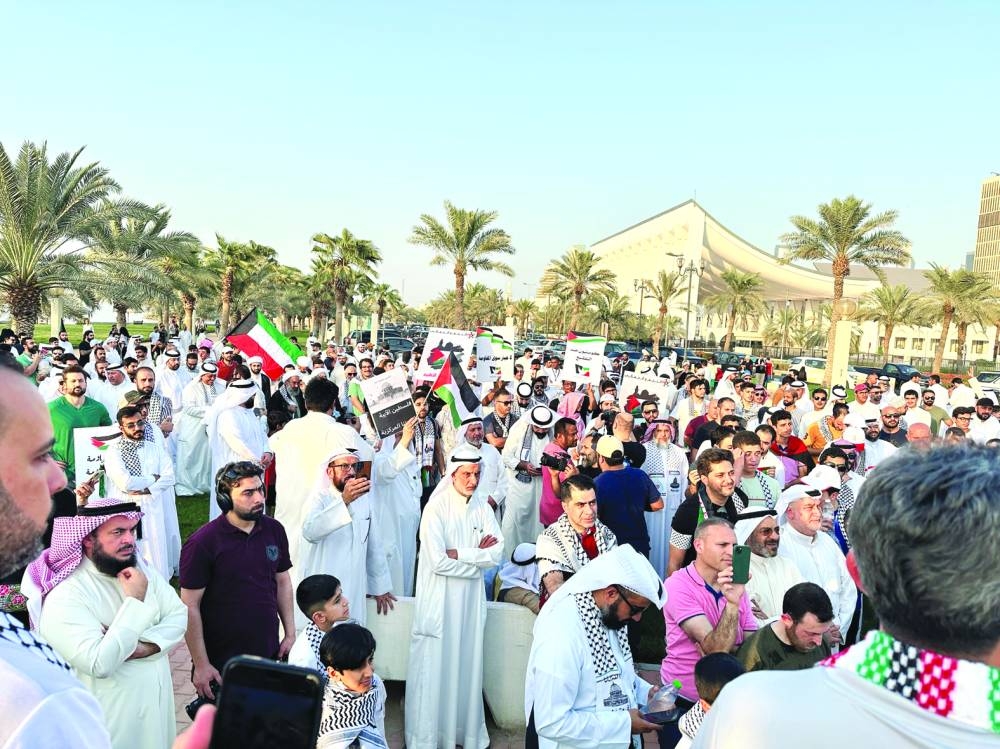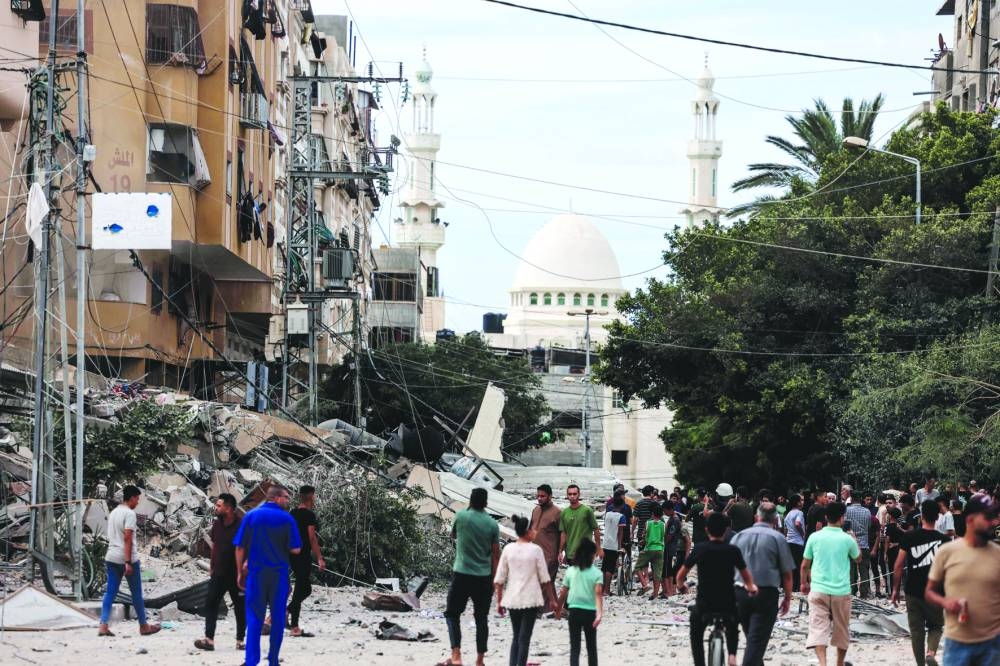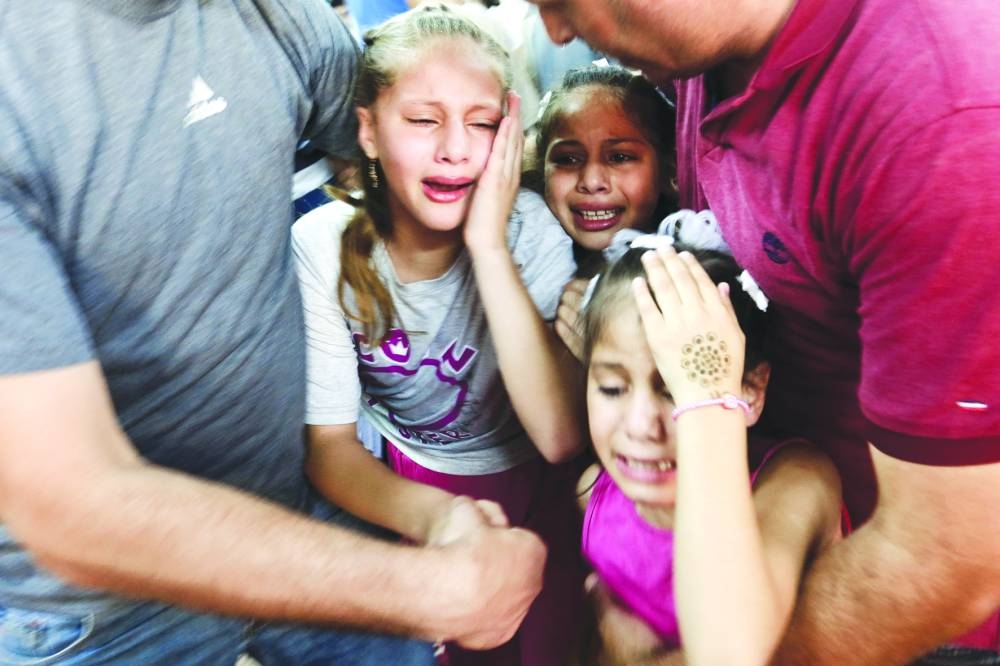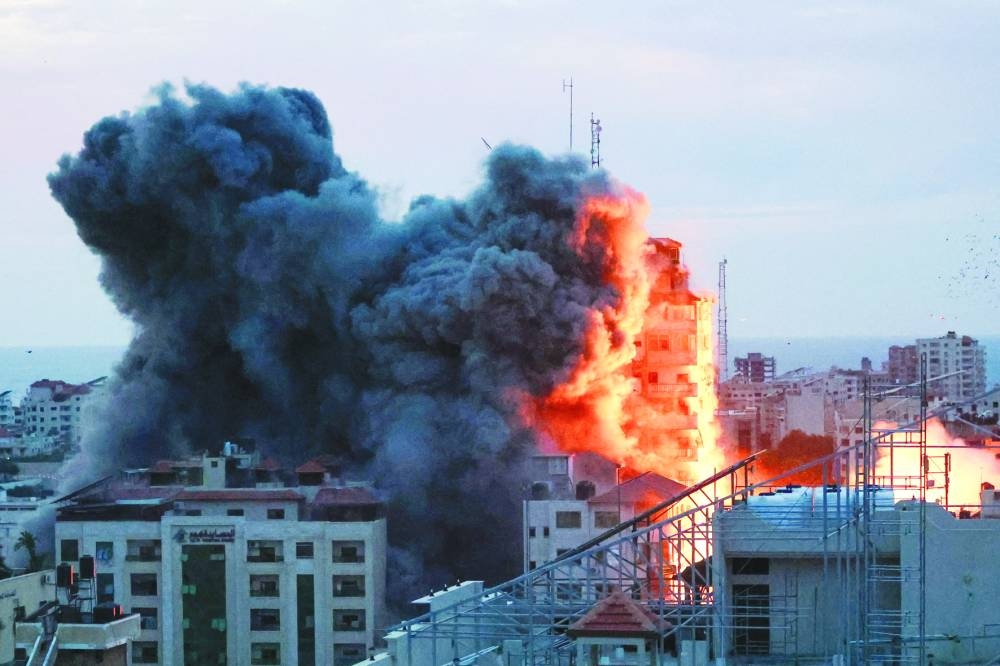Palestinian group Hamas launched a surprise large-scale attack against Israel yesterday, firing thousands of rockets from Gaza and sending fighters to kill or abduct citizens as Israel retaliated with devastating air strikes.
Gun battles raged into the night as at least 70 people were reported killed in Israel, while Gaza authorities released a death toll of 232 in the conflict’s bloodiest escalation in years which also left many hundreds wounded on both sides.
“We are at war,” Israeli Prime Minister Benjamin Netanyahu told the stunned nation as the airforce pounded targets in the blockaded coastal enclave, including several residential tower blocks that were completely destroyed.
“The enemy will pay an unprecedented price,” the veteran premier vowed after Hamas had launched its first such combined ground, air and sea offensive, half a century after the outbreak of the 1973 Arab-Israeli war.
The army said in the evening its forces were still engaged in live gun battles in 22 locations, in an ongoing operation labelled “Swords of Iron”, as reservists were being called up.
“There are still 22 locations where we are engaging with fighters that came into Israel, from the sea, from the land and from the air,” said army spokesman Richard Hecht, adding that the Hamas attack included a “robust ground invasion”.
He said there was a “severe hostage situation in Beeri and also in Ofakim”, two communities in the Negev desert east of Gaza.
Hamas earlier released images of several Israelis taken captive, and another Israeli army spokesman, Daniel Hagari, confirmed that “there are kidnapped soldiers and civilians.
“I can’t give figures about them at the moment. It’s a war crime committed by Hamas and they will pay the price.” The group started the multi-pronged attack around 6:30am (0330 GMT) with thousands of rockets aimed as far as Tel Aviv and Jerusalem, some bypassing the Iron Dome defence system and hitting buildings.
Hamas fighters — travelling in vehicles, boats and motorised paragliders — breached Gaza’s security barrier and attacked nearby Israeli towns and military posts, opening fire on residents and passersby.
“Send help, please!” one Israeli woman sheltering with her two-year-old child pleaded as fighters outside opened fire and tried to break into their safe room, Israeli media reported.
AFP journalists witnessed attackers gather around a burning Israeli tank, and others driving a seized Israeli military Humvee back into Gaza, where they were met by cheering crowds.
Bodies were seen lying on the streets of Sderot near Gaza and inside cars, their windscreens shattered by bullets.
“I saw many bodies, of fighters and civilians,” one man who gave his name as Shlomi said, standing beside covered corpses on a road near Gevim Kibbutz in southern Israel.
“So many bodies, so many bodies.”
Israeli army Major General Ghasan Alyan warned that Hamas had “opened the gates of hell”.
An AFP journalist in Gaza saw smoke billowing from the remains of a residential tower which Gaza’s interior ministry said contained 100 apartments and was completely destroyed.
Israel’s military said it had warned residents to evacuate before targeting the multi-storey buildings used by Hamas.
The aid group Doctors without Borders said one strike had hit the enclave’s Indonesian hospital and an ambulance outside Nasser Hospital in southern Gaza, causing multiple deaths.
As night fell, Israel’s state-run electricity company cut the power supply to Gaza.
The escalation follows months of rising violence, mostly in the occupied West Bank, and tensions around Gaza’s border and at contested holy sites in Jerusalem.
Hamas labelled its attack “Operation Al-Aqsa Flood” and called on “resistance fighters in the West Bank” as well as in “Arab and Islamic nations” to join the battle.
“We decided to put an end to all the crimes of the occupation (Israel),” said its armed wing, the Ezzedine al-Qassam Brigades, claiming to have fired more than 5,000 rockets.
Hecht said Israel had counted more than 3,000 incoming rockets through the day.
Hamas chief Ismail Haniyeh claimed the group was on the “verge of a great victory and a clear conquest on the Gaza front”. “Enough is enough,” he said in a televised address. “The cycle of intifadas (uprisings) and revolutions in the battle to liberate our land and our prisoners languishing in occupation prisons must be completed.”
Air raid sirens wailed across southern and central Israel, as well as in Jerusalem, where multiple incoming rockets were intercepted by air defence systems.
In Tel Aviv, a gaping hole was ripped into a building, with residents boarding a bus to seek safety in a hotel.
Rocket impacts left cars burning beneath residential buildings in the Israeli city of Ashkelon, north of Gaza.
Among the dead was the president of a regional council for Israeli communities northeast of Gaza, who was killed in a gun battle.
Schools will remain closed today, the start of the week in Israel.
The conflict sparked major disruption at Tel Aviv airport, with American Airlines, Emirates and Ryanair among carriers with cancelled flights.
Hamas took control of Gaza in 2007, leading to Israel’s crippling blockade of the enclave of 2.3mn people.
Israel and Hamas have since fought several wars. The last major military exchange, in May, killed 34 Palestinians and one Israeli.
In northern Gaza yesterday, hundreds of people fled their homes, carrying food and blankets, an AFP correspondent said.
Across the West Bank, including annexed east Jerusalem, three Palestinians were killed and around 80 wounded in clashes with Israeli forces and settlers, the Palestinian health ministry and Red Crescent Society said.
In Israeli-annexed east Jerusalem, some Palestinian residents cheered and blew their car horns as sirens blared.
Western capitals condemned the attacks by Hamas. But Hamas drew support from other foes of Israel, with Iran’s supreme leader declaring he was “proud” and Lebanese group Hezbollah praising the “heroic operation”.
The US condemned the attacks by “Hamas fighters” and vowed to ensure the key US ally has the means to defend itself.
European Commission President Ursula von der Leyen condemned the attack.
UN Middle East peace envoy Tor Wennesland warned of “a dangerous precipice” and called on all sides to “pull back from the brink”.

Protesters in support of Palestinians and Hamas’ “Al Aqsa Flood operation” stand close to Kuwait’s parliament building holding banners and Palestinian flags in Kuwait City, yesterday.

People assess the destruction caused by Israeli air strikes in Gaza City, yesterday.

Children react as they attend the funeral of Hamas fighters, who were killed by Israeli forces, in the northern Gaza Strip, yesterday.

Smoke and flames billow after Israeli forces struck a high-rise tower in Gaza City, yesterday.
